|
This night, I walk within empty echoes Of waist-deep weary fog, sinking to The crumbling floor of futility Dripping minutes bleed through cracked Rusty hours, as wafting feathers Of broken rest circle dreams Devoid of lullabies-- In waning monotone Pillow smothered murmurs Cover breath of crushed voices Not even stealing a skeletal whisper Past my withered lips. Michelle Faulkner lives outside Portland, OR, with her husband, her cat Little Miss, and her dogs Mr. Peabody and Sherman. Her work has appeared in The Literary Yard, Alternate Route, Westward Quarterly, Sparks of Calliope and others. She has also been published in two poetry anthologies, PS: It’s Poetry and PS: It’s Still Poetry, both available on Amazon.com, and also in several upcoming anthologies from Poet’s Choice. When not writing, she enjoys true crime shows and watching the Food Network, although does not actually cook.
The sleek straight walls of our arcology Penetrated by organic rot. A flower brought in, unseen, On the sole of a shoe or in a guilty heart. Our antiseptic citadel protected us From burning seas and mistakes long made. We sustained ourselves with sterile survival While the world outside decayed. An expedition to the wild outside And some failure of our defences Brought in our first fresh flower And long buried consequences. Stems and springs sprouted From burnished glass walkways. Escalators and elevators grew silent, their gears all clogged with grass. Attempts to decontaminate and control Only spread unsettled seeds. Vines clung about our structures and ruptured slowly from our skin. The first few people tried To rip or tear these new appendages. The fungal tongues growing from their chests and The poison ivy tangled in their hair. But they only grew back stronger Implacable, inevitable. Until all resistance stopped. The sinews coiled around our community Tendrils spreading one-by-one. Soil dripping from vacant eyes As they forgot their dull humanity. They shuffle around the corridors, Overtaken by new life. Bursts of red and green and yellow pulsating from walls and floors and mouths. Their minds are gone, but some life remains. Rebirthed in the barren womb of our last redoubt. I watch and wait for the dirt to take me. The last, but not alone. Butterflies and insects Spring from living, moving bone. Tangled metal flowers Grow around me in this room. I feel the fear of death abandon me. I know the world will be here soon.  Danny Shaw is a conflict researcher based in Scotland, but in his fiction he prefers horror to war. He loves horror with existential and political themes, like Thomas Ligotti, Brian Evanson and Hailey Piper. You can find his short stories and poems @WeirdAndFearty and his political work @DanielOdinShaw on Twitter. Don’t try to monetize a poltergeist. Greed’s bad ghost karma can’t be rectified. Disgraced, divorced, and homeless, one man saw Redemption’s outstretched hand where others paused. Abandoned, curiously cheap to rent, This mansion’s past inspired its second chance. Accomplices were needed. Two arrived When Gerald Laughlin hatched his hapless plot To profit from aged, angry entities. In 1967, he lured folks Who paid to tour dark rooms suffused with gloom Inhabited by visible deceased Who followed paying guests—but would not speak. Published accounts have chronicled his woes. Too many harrowing encounters there Encouraged Gerald and his cohorts—men Who never were right-minded after that-- To flee, unseen foes hanging on their coats. Since bad ghost karma can’t be overcome, Investigate who’s haunting your house first. Respect the dead, whose turmoil can’t be priced. Don’t try to monetize sly poltergeists. Background: After a professional crisis cratered his chiropractic career and his marriage, Dr. Gerald Alexander Laughlin [c. 1926—24 Jun 2001] needed inexpensive lodgings and a new purpose. A dilapidated 33-room mansion [1161 N. Liberty at Atlantic Ave.], rumored to house inhospitable spirits, was vacant and well below market value. In 1967, Laughlin transformed the 19th century residence into New Castle, Pennsylvania’s first “commercial” haunted house with the help of two young bachelors from Lawrence County whose work was compensated by free room and board. Tours ($5) were popular. Increasingly, however, witnesses told of unsettling things. Spectres attached themselves to attendees. The longer Laughlin let folks explore the premises, the more mayhem ensued. Were numerous car accidents and heart attacks really caused by vengeful apparitions? In June 1970, the three-story structure was closed for fire safety violations; condemnation proceedings were considered. When the haunted mansion was totally gutted by fire on October 9, 1970, arson was not suspected. For more information, please read, "The House of Lost Souls" by Patrick Glendon McCullough Native New Yorker LindaAnn LoSchiavo, a Pushcart Prize, Rhysling Award, Best of the Net, and Dwarf Stars nominee, is a member of SFPA, The British Fantasy Society, and The Dramatists Guild. Elgin Award winner "A Route Obscure and Lonely," "Concupiscent Consumption," "Women Who Were Warned," Firecracker and IPPY Award nominee "Messengers of the Macabre" [co-written with David Davies], and "Apprenticed to the Night" [Beacon Books, 2023] are her latest poetry titles.
Who came knocking, softly, softly crouching in the midnight gloom? Who came stealing, lightly, lightly from the closet of my room? Who said nothing, loudly, loudly at the foot of my cold bed? Who said curses, darkly, darkly with a tongue that was long dead? Who crept formless, shifting, shifting face of menace in the air? Who crept closer, searching, searching for someone who was not there? Who regretted dying, dying when his house at last was built? Who regretted love he squandered with unfinished ghostly guilt? Who departed, madly, madly when I finally bid him go? Who departed, silent, silent out into the Vermont snow?  Dayle (she/her) hosts poetry open mics and haunts old graveyards. Her poetry has been published by Haunted Words Press, Coast Weekend, HipFish, The Chinook Observer and Humanities Washington Poetic Routes. She recently presented her highly commended poem at the Angry Ghosts Poetry Competition in Suffolk, England. The ghost of her beloved cat, Dinah, occasionally visits and causes mischief. Twitter @daylejean Read more of her work here. They spew from Heaven’s ruptured seams; those shrieking, writhing beasts inside my waking dreams. They skulk along the veil of night and gaze voraciously upon our world so frail. Beware, the squirming swarms of limbs and tongues and obscene forms. Look up to the skies. Everywhere you look, they are watching; the stars, they are eyes.  Pedro Iniguez is a speculative fiction writer and painter from Los Angeles. His work has appeared in Nightmare Magazine, Helios Quarterly, Star*Line, Space and Time Magazine, and Tiny Nightmares, among others. He can be found online at Pedroiniguezauthor.com “After I saw the face in the paneled wall, Eyes closed, mouth set in a horrid, evil grin, At first, I felt no real dismay or fear, Although uneasy--since it seemed so clear! But slowly, very slowly dark thoughts began to win, The Face began my senses to appall. “I told my doctor that his office paneling Showed clearly a demon’s visage, a cursed face. I said, ‘It’s there man! Don’t you see!?’ He looked, he even stared, then said to me: ‘I want you to keep a journal to replace Your thoughts that ramble in delusional channeling.’ . . . I’ve broken in and must look. No escape! See now! The eyes! Wide open! Fanged mouth agape!”  Frank Coffman is a writer. His special interests are in speculative poetry and fiction across the several genres of Weird, Supernatural, Horror, Fantasy, Science Fiction, Detection, and Adventure. His poetry is, almost exclusively, traditional and formal rhymed and metered verse. He rejects the notion that there is a "New Formalism," since he doesn't believe the "old" kind ever died. As a retired professor of college English, Creative Writing, and Journalism, he has published poetry, fiction, and scholarly research in a number of journals, magazines, and anthologies. He selected, edited, introduced, and did commentary for ROBERT E. HOWARD: SELECTED POEMS. He is interested in Stylometric Analysis and Formalism and in Rhetorical and Symbolic Criticism specifically. Follow Frank's blog at: frankcoffman-wordsmith.com and mindseye.us.com. The old crabapple tree spoke first, loud and clear, except listening takes expertise. Its crooked trunk and skeletal limbs do their best to support apples rotten to the core, hanging on until they drop to death. A bed of tangled weeds hides nests of ground hornets that engulf the fallen fruit, an arbitrary cemetery, ignored. Burning bushes way past glory days of crimson, look charred and sore as though seeded on a volcanic planet. Windows. Cleaned yesterday, but within four days the glass will fade into shades of gray, tainted with scents of decay. Worse, the entryway mirror is coveted by sheer madness since it returns after being discarded. Nothing hides under our beds, yet never would arms or legs dangle, or dare set foot upon aged floors after 3:17am. Just pretend you exist on a tropical island, drift into a warm place, sway on a hammock while waiting for sunlight to break. Basement. Do not consider looking back at those etched glass doors once shut, eyes ahead. Trust me on this. And if the old man wearing a black hat asks for a cup of tea, he prefers the pale yellow mug displaying a pristine crabapple tree.  Nora Weston is a Michigan based writer/artist. Her work has appeared in Bete Noire and James Gunn’s Ad Astra. Currently, work has been published by Green Ink Poetry, Crow Toes Quarterly, Illumen, and Strange Horizons. Work has been accepted by Penumbric Speculative Fiction Magazine and Utopia Science Fiction Magazine. because I would not dance for Death—he kindly danced for me and showed me a lesson in graceful—humility he slowly moved—a deathly pace serenaded by—the deathly shapes that hovered over and twirled along in ghastly—symphony and I stood there... I stood there... mouth agape, admiring, with composure and grace his sublime—ability that is until—he reached for me, for me alone, in this phantom ball, in this phantom hall, beyond the veil of—tranquility and then—as if by spell, I moved in... I moved in... and grabbed his hand and took the lead and in the lead—we danced! oh, how we danced! swaying and spinning through the air—in perfect harmony and though our time was brief—all too brief I found a comfort here here, in his embrace, his deathly embrace, relieved by his exalted—civility because our little dance it taught me death, it taught me life within the limits of—possibility for no matter the gown, no matter the ball, this little dance unites all and so I dance here…. yes, I dance here... with bated breath... for we are all equal unto Death requiescat in pace  J.D. Harlock is a Lebanese writer based in Beirut. His short stories have been featured in The Deadlands, Sciencefictionary, Defenestration, Wyldblood Press, and the Decoded Pride Anthology, his poetry has been featured in Penumbric, Future Fire, Mobius and Black Cat Magazine, and his articles/reviews have been featured NewMyths.com, Mermaids Monthly, Interstellar Flight Press, and on the SFWA Blog. You can find him on Twitter and Instagram @JD_Harlock. by Stephanie M. Wytovich In the past decade or so, speculative poetry has presented itself in the marketplace as an equal and valid contender in the field, thereby solidifying its place in the world of publishing, both large and small. Readers now not only enjoy it in magazines and individual collections, but also in anthologies, craft books, and in nonfiction articles exploring its value, voice, and contribution to science fiction, fantasy, and horror. Two great examples of this are the recently relaunched Weird Tales and the 2021 Halloween issue of Southwest Review edited by Andy Davidson. When I started out as a fledgling poet, I turned first to The Science Fiction and Fantasy Poetry Association (SFPA), and all these years later, I remain a member in this community that continues to celebrate poetry in all its different forms. When I first heard about the SFPA, I quickly researched their website, joined their Facebook group, and signed up for my yearly membership. As someone new to speculative poetry—not to mention someone who didn’t even know that speculative poetry was an avenue to pursue at the time—I devoured the listing of current markets they had and still have on their website, careful to make note of which magazines spoke to me and the work I was doing. I began submitting to their own magazine, Star*Line, and then discovered the themed work they did with Eye to the Telescope. Later on, I learned about the Rhysling Award, the Dwarf Stars, and the Eglin Award and was fortunate to have some of my work published in subsequent anthologies while my book Mourning Jewelry placed third in the Elgins in 2015. I bring this up because the opportunity to read for these awards and get to know and network with fellow poets was not only inspiring but a kind of professional development in and of itself. I had never formally studied poetry, but I learned and continue to learn so much from this group and it’s provided me editorial opportunities, such as with Issue 17 of Eye to the Telescope, promotional outlets, and camaraderie in a career that is not only isolating but quite lonely at times. Similar to the SFPA, my involvement with the Horror Writer’s Association (HWA) has proven invaluable to my life blood as a poet. From the Bram Stoker Awards to the HWA Poetry Showcase to the HWA Poetry Blog and then the Dark Poetry Scholarship, the HWA has worked hard to include, promote, and educate writers about how horror poetry can supplement their writing career and lead to a road of publication and higher learning. Similar to the SFPA, HWA members have countless opportunities to publicize their work and/or events, contribute to a variety of initiatives, and teach/attend continuing education workshops. Furthermore, when I attend Stokercon, there are always panels that discuss the state of speculative poetry, or that talk about the intersection of horror, writing, and mental health, and whether I am listening in the audience or contributing to the discussion, the conversation around poetry is always present and well-attended, proving that the form is not dead, but rather very much alive. If you’re interested in getting more involved in the speculative poetry community, I highly recommend checking out the organizations above, volunteering where you can, and continuing to submit your work frequently. Please note that there are also mentorship opportunities, board positions, jury seats, and editorial work to be sought out, so there are lots of ways to contribute to the market, the genre, and get more involved in the work that’s being done. Afterall, if we want to continue to see poetry flooding the markets, we need to nourish the communities that support it while also educating and promoting each other’s work.  Stephanie M. Wytovich is an American poet, novelist, and essayist. Her work has been showcased in numerous magazines and anthologies such as Weird Tales, Nightmare Magazine, Southwest Review, Year's Best Hardcore Horror: Volume 2, The Best Horror of the Year: Volume 8, as well as many others. Wytovich is the Poetry Editor for Raw Dog Screaming Press, an adjunct at Western Connecticut State University, Southern New Hampshire University, and Point Park University, and a mentor with Crystal Lake Publishing. She is a recipient of the Elizabeth Matchett Stover Memorial Award, the 2021 Ladies of Horror Fiction Writers Grant, and has received the Rocky Wood Memorial Scholarship for non-fiction writing. Wytovich is a member of the Science Fiction Poetry Association, an active member of the Horror Writers Association, and a graduate of Seton Hill University’s MFA program for Writing Popular Fiction. Her Bram Stoker Award-winning poetry collection, Brothel, earned a home with Raw Dog Screaming Press alongside Hysteria: A Collection of Madness, Mourning Jewelry, An Exorcism of Angels, Sheet Music to My Acoustic Nightmare, and most recently, The Apocalyptic Mannequin. Her debut novel, The Eighth, is published with Dark Regions Press. Follow Wytovich on her blog at http://stephaniewytovich.blogspot.com/ and on Twitter and Instagram @SWytovich and @thehauntedbookshelf. You can also find her essays and nonfiction on LitReactor. Man is the last species to die, for he can eat all the others. Plankton, plant, pork or porgy All go down his maw. Forget about cockroaches and rats, Man dines on them both. Consider seafood as example. Poisonous blowfish, mercury-laced lampreys, sea urchins and periwinkles, sharks and slugs and squid, unless rotted, all eaten. And after man consumes all the plants and animals he’s apt to eat other men as well. 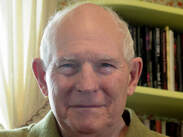 Ed Ahern resumed writing after forty odd years in foreign intelligence and international sales. He’s had over three hundred stories and poems published so far, and six books. Ed works the other side of writing at Bewildering Stories, where he sits on the review board and manages a posse of six review editors. Follow Ed on Twitter, Facebook, and Instagram. |
Archives
June 2024
Categories
All
|
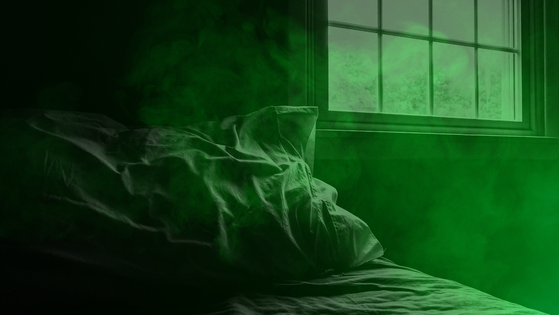
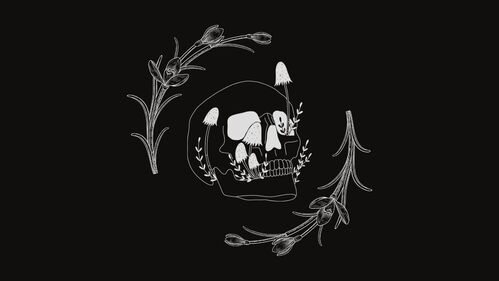
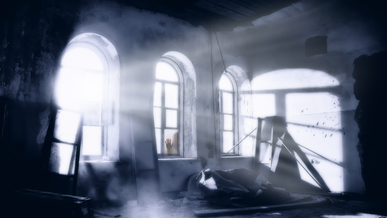
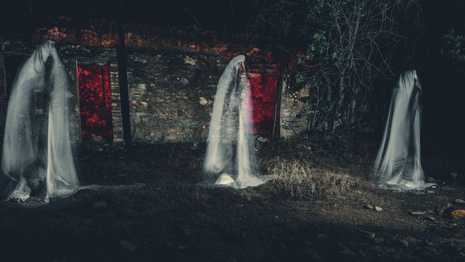

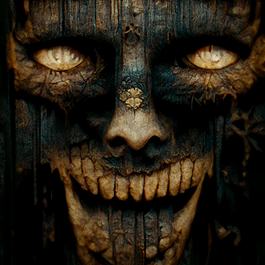
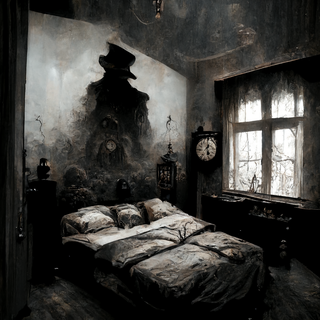
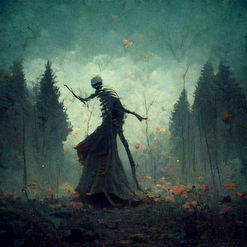
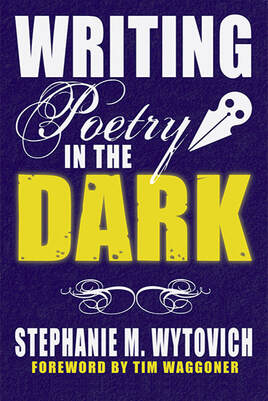

 RSS Feed
RSS Feed